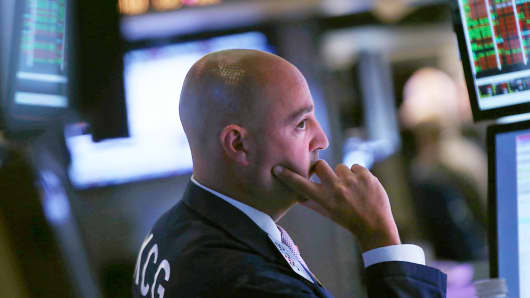1) Apple has been hit with a rare spate of downgrades. The iPhone maker was cut to neutral at UBS, Credit Suisse, and BofA/Merrill. Apple is one of the most covered stocks on Wall Street; by my count, of the 45 brokerage firms that provide analyst coverage, 35 had "Buy" or "Overweight" ratings, 9 had "Hold", and only one (ABG Sundial Collier) has a "Sell" rating.
2) The Wall Street Journal is reporting that Greece may need two more aid packages, according to Luc Coene, the president of Belgium's National Bank.
Good luck with that. There's already been two bailouts. Angela Merkel is having a tougher time than expected with the German elections, which will take place September 22nd. Polls indicate most Germans continue to support the concept of the European Union, but prefer it smaller. That means the German electorate is clearly in no mood for extended bailouts, no matter who wins.
3) The Verizon multi-tranche corporate bond offering, at $49 billion, is the biggest in history. That's triple the size of the previous largest deal, which was Apple at $17 billion. Here's the biggest corporate bond offerings:
Verizon $49B
Apple $17B (April 2013)
Roche $16.5B (Feb 2009)
ABBVie $14.7B (Nov 2012)
Pfizer $13.5B (March 2009)
GE Capital $11B (March 2002)
It's remarkable that you can have a deal this large priced in such a short period of time, and the market seems to be sucking it up immediately.
Can the market really absorb this? The short answer is yes. First, it appears to be priced a bit cheaper than other Verizon bond offerings. However, perhaps more importantly the Verizon deal will go into the main bond indexes.
Investors who benchmark to the indices need to buy this deal to maintain their allocation percentages. There will be a large number of natural buyers because of this. There will be a lot of long-only buyers.
—By CNBC's Bob Pisani









